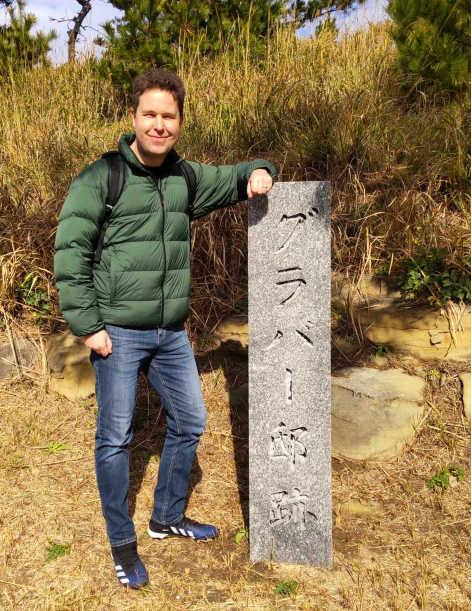IVINGS, Steven
Associate Professor (PhD in Economic History, London School of Economics)
external link Activity Database on Education and Research
Fields of Research: Social & Economic History, Business History, Colonialism and Development, Modern Japanese and East Asian History
Academic Background: I received my Undergraduate Degree in Economic History in 2006 at the London School of Economics and Political Science (LSE) before completing a Master’s Degree in Japanese Studies (History and Management majors) at the School of Oriental and African Studies (SOAS) in late 2007. I then spent almost three years in Japan studying the language and teaching English before returning to LSE in 2010 to enter the doctoral programme in Economic History. My PhD focused on the socioeconomic history of colonial Karafuto (Sakhalin) and was completed in 2014. During my doctoral studies I spent a year at Tokyo University and also worked as an assistant correspondent at Hokkaido Shimbun’s London Office. From late 2014 until the summer of 2017, I was employed as an Assistant Professor in Cultural Economic History at Heidelberg University in Germany. From the summer of 2017, I have been employed at the Graduate School of Economics, Kyoto University, first as an Assistant Professor, then as a Senior Lecturer (from 2018) and now an Associate Professor (from 2021). I am also the co-ordinator for the Graduate School of Economics’ joint MA degree programme in “Global markets, local creativities” which is provided jointly with the University of Barcelona and the University of Glasgow.
Research Activities: My research seeks to examine the historical processes of globalization (including trade integration and [de]colonization) and economic change (such as industrialization) in the nineteenth and twentieth centuries, their effects on local areas, and the uneven participation of individual actors and organizations in these processes. Examining the intersection between local actors and global forces I pursue research that examines the flow of people, commodities, capital and ideas across space and time, seeking to provide connected local histories that move beyond conventional nation-state-centric historical frameworks. Currently, my research focuses on Hokkaido and Karafuto (Sakhalin) in the nineteenth and twentieth centuries and how these regions/colonies interacted with Western imperialism and commercial expansion in Asia as well as Japan’s own imperial expansion and industrialization process. Connected to this I conduct research on Japan’s open (treaty) ports in the mid-to-late nineteenth century seeking to provide detailed micro-histories of the conduct of trade by individual merchants (Japanese and foreign) and the impact of trade on the surrounding local economy. In addition to this I also conduct research on socioeconomic issues related to colonial and decolonization migration, the British Commonwealth Occupation Force in Japan (1946-52), as well as historical memory and heritage, particularly related to industry, commerce and port cities.
Courses in Charge: Economic & Business History; International Academic Presentation; Academic Career Training; Academic Writing and Discussion; Advanced Academic Writing and Presentation; Economic Development and Policy in the Asia-Pacific; Global Varieties of Capitalism (taught at the University of Glasgow)
Skills and Qualities Required for Prospective Students: I welcome applications from students who have a demonstrated background in history (preferably Economic, Business and/or Social history) and/or economics, though for the latter a strong interest in history is a must. I am open to supervising a wide variety of topics, eras and regions in socioeconomic and business history though my own expertise is mostly limited to the modern economic history of Japan and East Asia, Western business in East Asia, and colonial development. I encourage my students to develop a critical approach towards their sources and to be open to utilizing multiple methods in their research rather than simply taking a quantitative approach as default.
Examples of Thesis Subjects:
Doctoral Dissertations
- Colonial and Postcolonial Development of Local Entrepreneurship in Malaysia 1900-1960
- Britain as a Contractor State: Cooperation between the Navy and Private Shipbuilders
- Stealth Privatization: Power Dynamics behind Sustainable Fisheries Governance
- Airline Privatization in Europe and Industry Dynamics: British Airways, Lufthansa, and Air France
